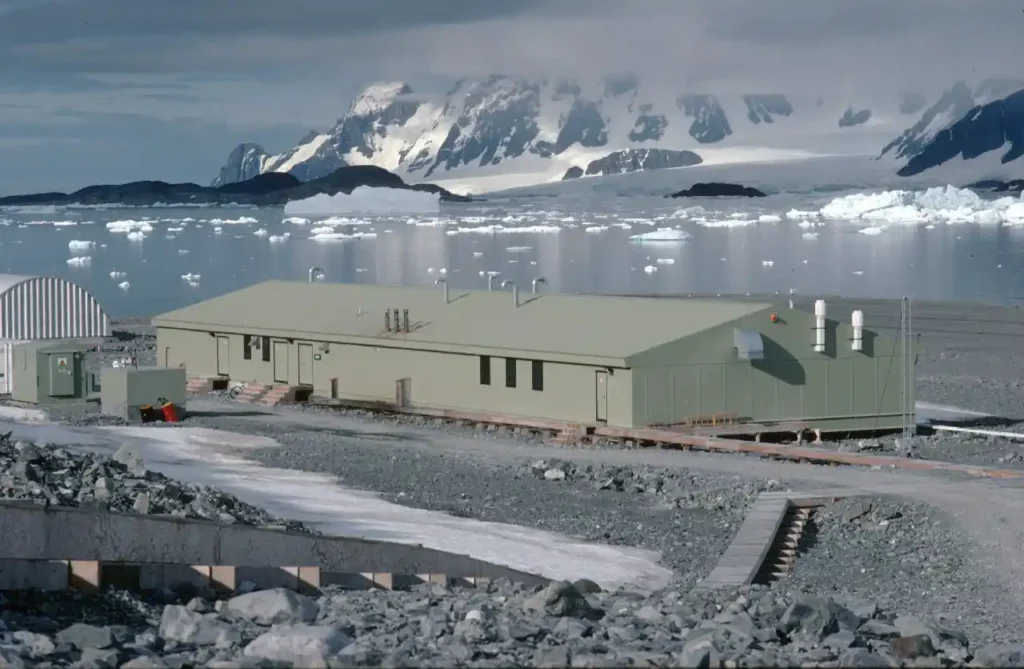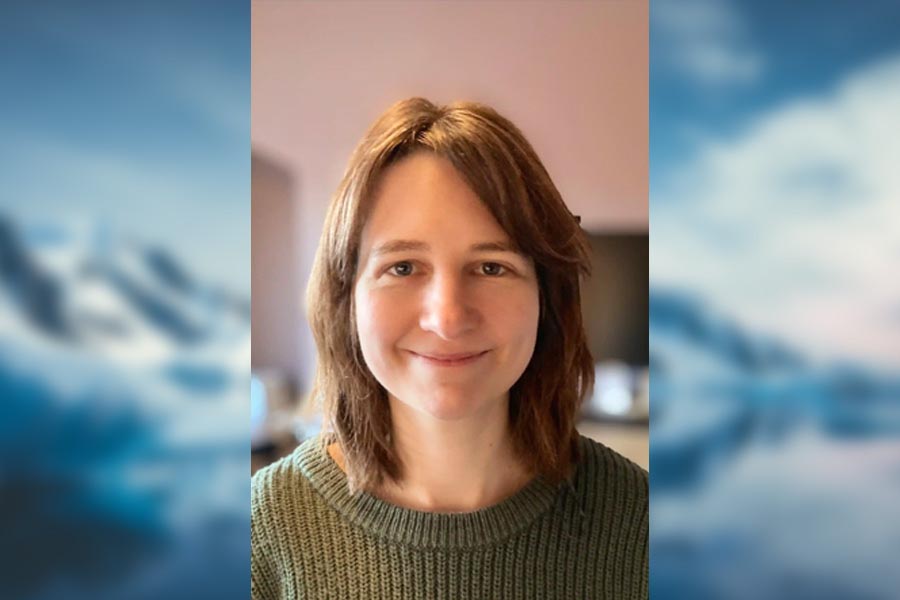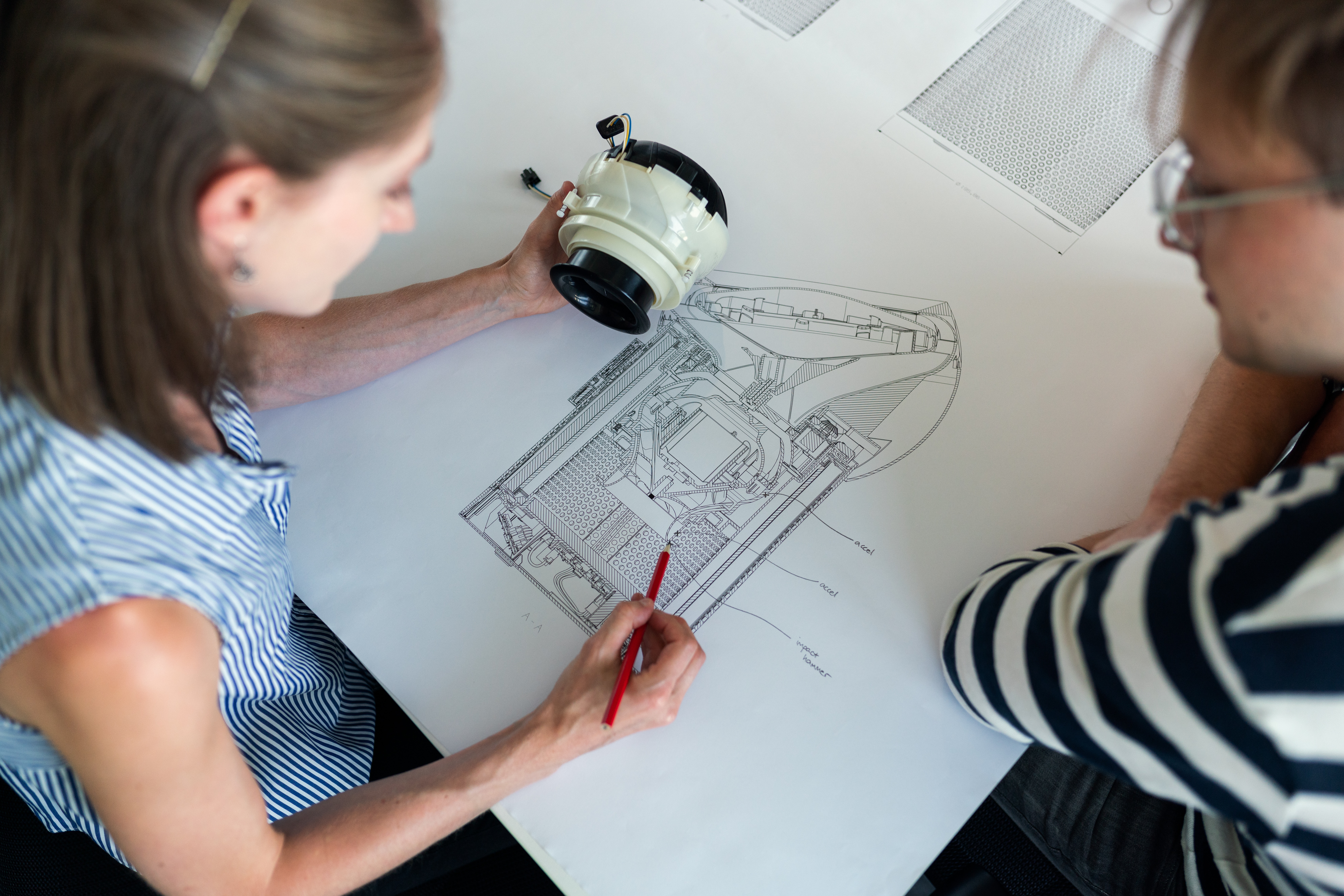Welcome to Specialist Spotlight, where we speak to GrantTree’s funding, science and technology experts working to connect innovative UK businesses with funding. In this edition, we speak to R&D Technical Consultant and environmental scientist Dr Emma Elvidge, PhD.
In this wide-ranging interview, Emma talks about her time investigating the use of seaweeds as a source of biofuel, her secondment to Antarctica studying marine trace gas emissions mere feet away from penguins and elephant seals, and how her storied academic career helps her work with GrantTree’s R&D Tax Relief clients to explain their complex development work to HMRC’s tax inspectors.
Check out the full interview below. And make sure you subscribe to our newsletter to get all the latest content sent straight to your inbox!
The interview
What first attracted you to environmental chemistry?
I did environmental science for my undergraduate degree as I thought at 18 I was going to single-handedly save the world! Joking aside, I wanted to do an applied field of science, and it seemed like there was plenty of scope there for meaningful future work.
My undergraduate degree was broad, and we could specialise in any direction we wanted: I found myself gravitating toward the physical and chemical environmental topics (meteorology, atmospheric chemistry, ocean chemistry).
The success story of the discovery and (hopefully!) repair of the Ozone Hole really sparked my interest, and I decided to move into that field.
You gained your doctorate at the University of East Anglia. Could you tell us about your thesis?
My PhD was a collaboration between an Atmospheric Chemistry research group and a Marine Biogeochemical research group.
At the time, there was lots of interest in Southeast Asia around the potential to use farmed seaweed as a biofuel (and fossil fuel replacement), but we knew seaweeds released natural, short-lived analogues of ozone-depleting substances such as CFCs. My job was to investigate this potential downside of using seaweeds as a biofuel: whether dramatically increasing seaweed farming would impact the halogen loading of the stratosphere, where the Ozone Layer is found.
Yes, I did spend quite a bit of time on Malaysian beaches…but I spent even more time at the lab bench!
"My job was to investigate this potential downside of using seaweeds as a biofuel: whether dramatically increasing seaweed farming would impact the halogen loading of the stratosphere, where the Ozone Layer is found."
After your PhD, you spent three months in Antarctica studying marine trace gas emissions - what was it like living and working in that extraordinary climate?
I’d always wanted to travel, and my PhD and subsequent research really opened up opportunities for me to do so.
Following my PhD, I moved to Germany, where we had a container full of scientific equipment on a Lufthansa commercial aircraft. If you’ve ever flown from Frankfurt Airport on a Lufthansa flight, you might have been sitting above our air samplers! A couple of years later, I got a call from a former colleague who was looking for someone to spend a summer season in Antarctica.
The first day in the lab, I realised my brand-new mass spectrometer needed some modifications to work as we wanted it: that’s when the isolation hit home. Here I was, bashing a hole in an extremely expensive piece of kit with no company engineer to call or spare parts to order!
Being in an environment where your daily options are somewhat limited (there’s no popping to the shops or the cinema or picking the food you want to eat) is really quite freeing, and I achieved a lot. I feel incredibly privileged that I got to work for a while with penguins outside my windows and orcas in the sea nearby.
In addition to your doctorate, you have a PGCE and a Diploma in Higher Education Practice. Were you always interested in teaching, or was that something you developed during your studies?
I like helping people understand something they didn’t feel they could understand before (I still feel that way now when I help GrantTree’s clients navigate funding opportunities!) and sharing the joy of things I’m excited about.
Research can be quite isolating, and teaching gave me the opportunity to learn from others and stretch my social and emotional skill set. I’ve brought a lot of that to GrantTree when working with our customers.
Subscribe to GrantTree's Newsletter
Get all of GrantTree’s blogs, guides, and interviews sent straight to your inbox!
You then spent several years at the University of East Anglia, including time spent EXC3ITE project, which examined stratospheric changes caused by climate change and ozone losses. I hear your research involved high-altitude balloons?
Yes! When I heard about a project to not just launch but retrieve weather balloons on our teeny tiny British island I had to be involved!
As opposed to physical measurements (temperature, humidity), which can be measured in the environment with sensors and then data transmitted back to base, most chemical measurements still need whole air samples to be returned to a laboratory for analysis. This is a huge challenge for atmospheric profiles as it’s difficult to measure past the height of a commercial aircraft. Even when working within the altitude range of an aircraft, flight time is very expensive, not to mention incredibly carbon intensive.
A team in America designed a clever sampler called an AirCore to be launched on a weather balloon. It’s just slightly easier to not land in the sea if you launch in the middle of America rather than Norfolk.
Although the aim of the project was academic research, this was definitely R&D: we had to build prototypes and conduct lots of testing. There was definitely a lot of uncertainty and innovation. So I can empathise with our clients when they’re discussing their R&D projects and the difficulties they faced.

You’re now an R&D Technical Consultant helping companies explain their technical work to HMRC. What do you like most about the role?
I get to satisfy my nosiness about what other people do all day at work!
Seriously, I’ve always been someone who is fascinated by a whole range of different projects, industries, and techniques, and now I get to indulge that interest on a daily basis whilst chatting with some of the UK’s brightest innovators and businesses.
I use the analytical skills I gained from years conducting my own research to tease out the key messages from client interviews and technical documents to ensure we have a clear picture to present to HMRC, helping clients claim R&D Tax Relief while avoiding an enquiry.
I’ve always been someone who is fascinated by a whole range of different projects, industries, and techniques, and now I get to indulge that interest on a daily basis whilst chatting with some of the UK’s brightest innovators and businesses.
Technology will have to play a key role in addressing climate change and enabling the UK to reach its Net Zero goal. What technologies do you think hold the most promise?
My work at GrantTree is absolutely a continuation of my 18-year-old self’s original aim to make a difference. It’s clear that our current government (and it’s not the only one) is placing its bets on technology to mitigate climate change and so I have a great platform here to support businesses in that realm to maximise their potential.
I think addressing climate change and achieving Net Zero needs a multi-faceted approach, there are great companies working to create products that accelerate our divergence from fossil fuels (preventing carbon emissions); lead to societal behavioural change or advance our divergence from fossil fuels (reducing emissions); and advance carbon capture and storage technologies (removing carbon post-emission). All areas have a role to play, and I’m proud that GrantTree’s clients are heavily involved in all three!
With my particular laboratory and practical experience, I’m always keen to talk to clients working on physical manufacturing, geotechnical, and engineering solutions.






